Editor: 周婷 Time: 2021-08-17 Number of visits: 18
From July 5 to August 13, 2021, the summer online course project of Peter the great St. Petersburg Polytechnic University, Russia, undertaken by the Department of physics of Zhejiang University, was successfully held! Despite the online form, this summer school still attracted 28 students from four different departments of Zhejiang University to participate in seven project courses, respectively. Online courses have professional knowledge, colorful cultural activities, lectures, vlogs, projects and presentations, thus students can also be involved and feel like they are present without really having to be there.
Ⅰ. Theoretical Knowledge and Frontier Sciences
Most students showed high interests in “Plasma Physics and Controlled Fusion” course. As the key domain and important physics research that have become popular in the whole society in recent several decades, the advanced technologies and devices, such as Stellarators and Tokamaks, are quite attractive to students. Because this course was rich in content, novel and diverse in form, students were so absorbed and gained a wonderful exchange experience.Professors from Japan introduced the history, developments, the future of controlled nuclear fusion and the contributions of Japan, while the featured professor introduced the basic knowledge of plasma and detailed mechanism of Tokamaks, the mainstream controlled fusion device. At the end of the course, the teacher also showed us the videos he recorded in the laboratory in advance to make up for our regret that we were unable to observe the experimental equipment and various plasma phenomenon in person. The wonderful and novel experiments of rare gas glow discharge tube, electrostatic ion ball, magnetically confined particle cavity and so on made us have a more intuitive understanding of the knowledge we have learned, and we can experience the sophistication and profundity of the plasma physical world even across the screen.
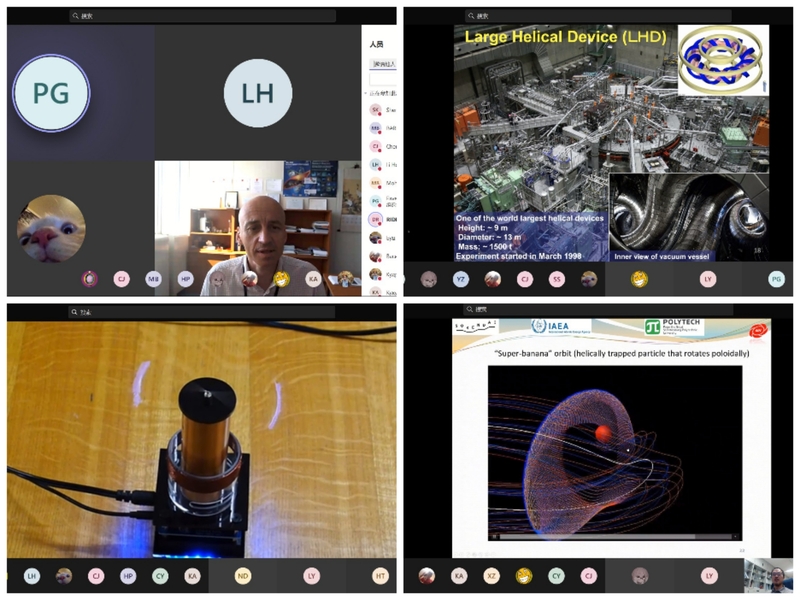
The Polyphotonics course covered a wide range of topics, including the fundamentals of wave optics, optoelectronics, applications of optics in biomedicine, optical simulation, the combination of machine learning and optical image processing, quantum optics, quantum communication, quantum cryptography, liquid crystal industry, etc. The teacher explained the relevant principles of polyphotonics in detail and various applied technologies of polyphotonics. Combined with videos and pictures, students were more intuitive to understand the wide applications of optics in the real world. In addition to theoretical knowledge, the course also focused on cultivating students' operative ability and set up several assignments for us at the beginning, which trained our independent thinking ability, unity and cooperation ability, innovative thinking and English communication.
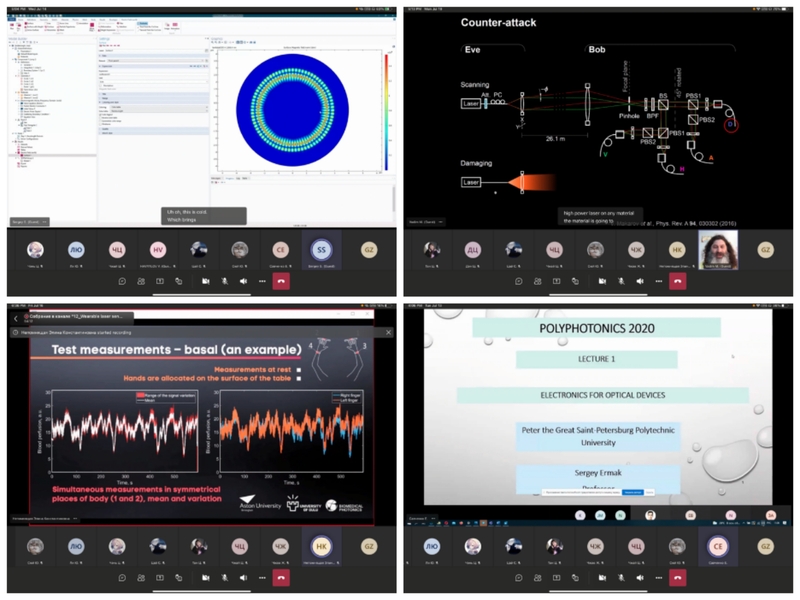
In the course of Space Technologies, many teachers gave a detailed and in-depth introduction to the researches in various aspects of aerospace of St. Petersburg University. The students not only had access to introduction videos of ray receiving satellite stations and other scientific research facilities, but also appreciated the front-line research projects such as space exploration technologies and new design of cube microsatellites. As a result, students can feel the advanced and unlimited development potential of aerospace space technology more intuitively. At the beginning of the exchange, the teacher arranged for the students of each group to design and display the nano satellite project according to the learned content. In the final display stage, the design of each group was either unrestrained or rigorous and reasonable, integrating media, software, scientific research and other aspects. The wonderful ideas won the appreciation of Russian teachers.
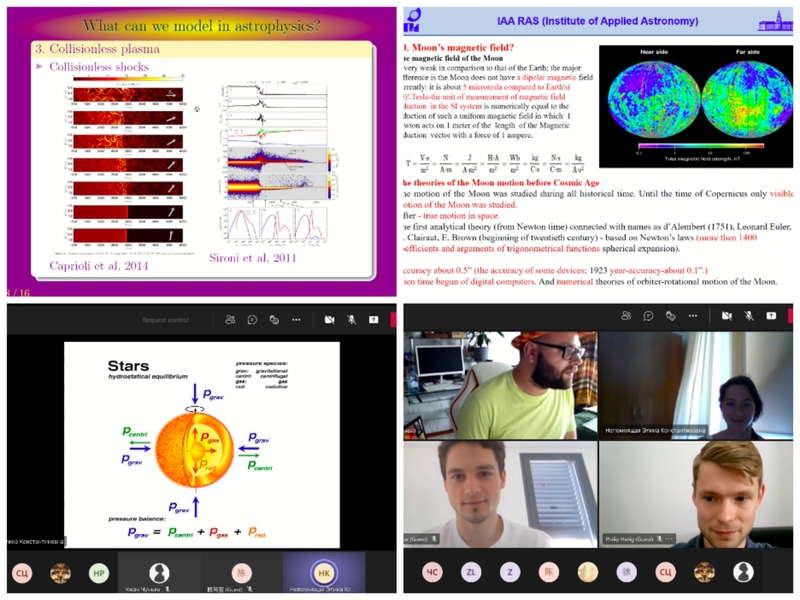
In the course of Machine Learning Theory and Application, under the leadership of Nikita and Ogul, 15 students from different countries thoroughly experienced the process of human exploration of mechanical wisdom. Starting from theories and concepts, this course enabled beginners to understand the principles behind machine learning. At the same time, it also introduced the related programming and the library functions involved. As a result, we can quickly master the routines in practical operation. With the advancement of the course module, two programming tasks that originally seemed extremely arduous gradually became easier. Finally, the students used the knowledge they learned in the course to complete the course task. The machine learning knowledge acquired in this course will also help us forge ahead in the future.
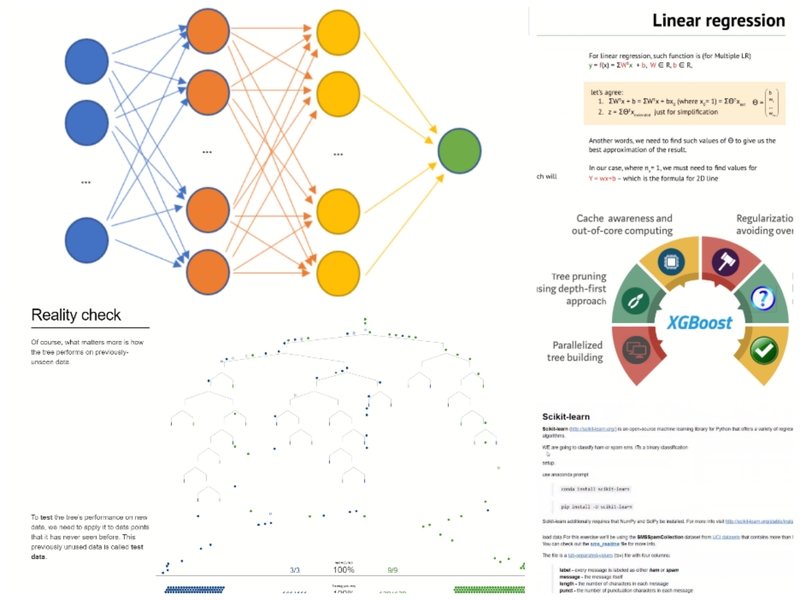
The artificial intelligence course covered the origin and development of AI, basic concepts, ethical and philosophical issues in five days. The main topics of the course include machine learning, neural network, expert system, fuzzy logic, in-depth learning, etc. At the same time, it also introduced the principles and methods of some machine learning programming software. By finishing our homework, we also had the opportunity to get in touch with simple machine learning programming. Through this course, our interest in artificial intelligence was aroused and our understanding of the field of AI research was deepened.
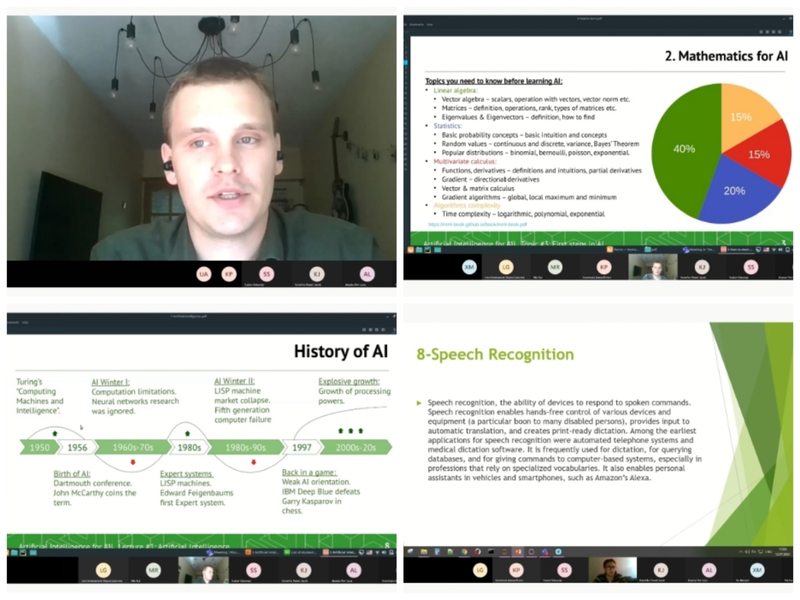
In the course of Power Electronics , we learned the basic methods of calculating steady state and transient processes in circuits. These methods were applied to the most common electronic circuits in engineering practice, including amplifiers, rectifiers, stabilizers, triggers, and other devices. Microcontrollers and their architecture and design had also received much attention. During the course, the professor introduced commonly used circuit models and used MATLAB as a tool to simulate. In addition to the simulation of the model, lectures by four teachers gave us a general introduction to the overall situation and research frontiers of the energy industry, providing us with a broader perspective. In addition, on the last day of the course, the students gave wonderful presentations in the class and introduced their own case research results on the energy industry. Everyone exchanged ideas with others and gained a lot.
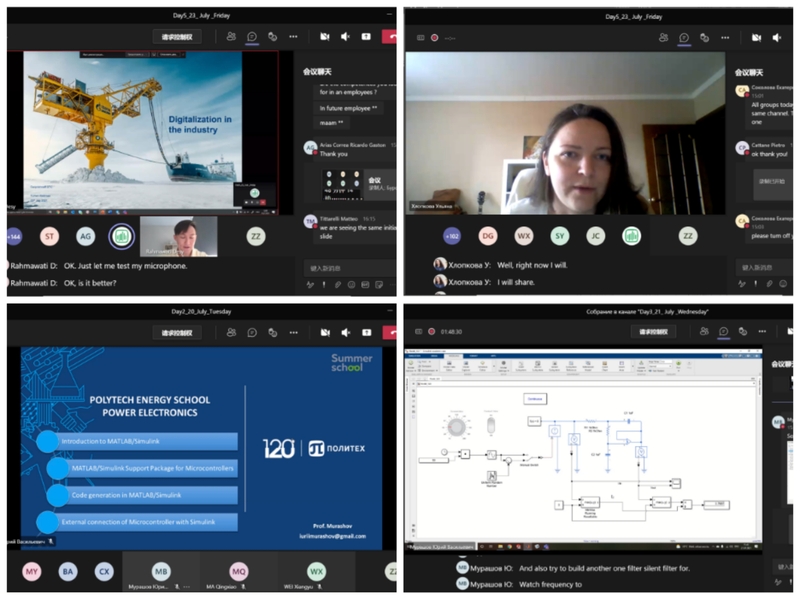
In the course of Big Data , it started with the simplest concept of big data and Python language, introduced various database systems and data processing methods, carried out detailed operation demonstrations in practical courses. It also explained the general big data computing framework such as Traditional big data technology Hadoop's MapReduce, Hive engine, Storm streaming real-time computing engine, and other industrial-grade big data application structure and required technologies, involving many aspects of machine learning.In the end, we completed a New York City Taxi Fare Prediction project as a group, made an outlook of its next development. I think we all improved our ability when using data to solve practical problems. For me, the best reward is that I have gained valuable experience in communication and collaboration with students of different backgrounds and abilities.
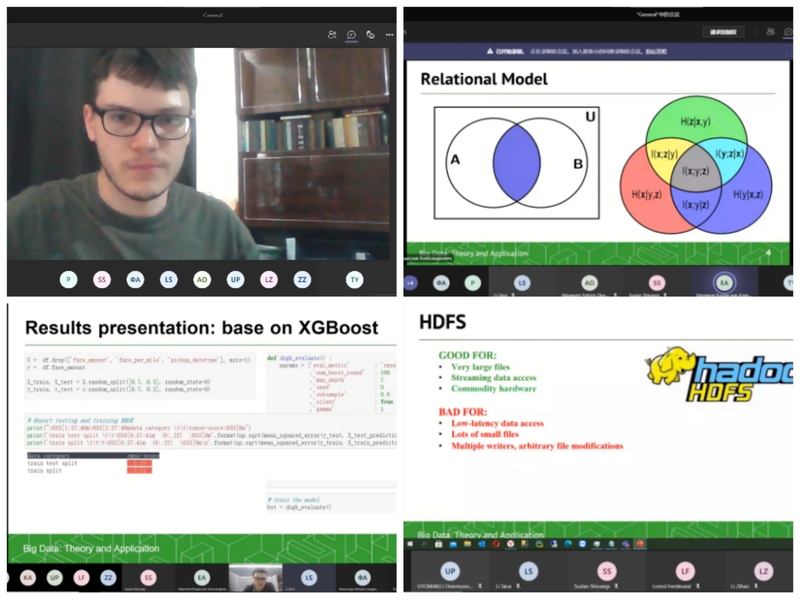
Ⅱ. Cultural activities and online Excursionså
The courses not only taught us theoretical knowledge, but also interspersed various interesting online activities in the course arrangement: visits to Polytechnic University and Hermitage museum , ice-breaking games, etc. In the Pub Quiz, students were randomly divided into groups. Most of the questions raised by the host are about Russian culture, covering all aspects of astronomical geography and humanity. The whole process of the game was tense and stimulating. It was a small game, but each group had a strong desire to win or lose, which made the night unforgettable.
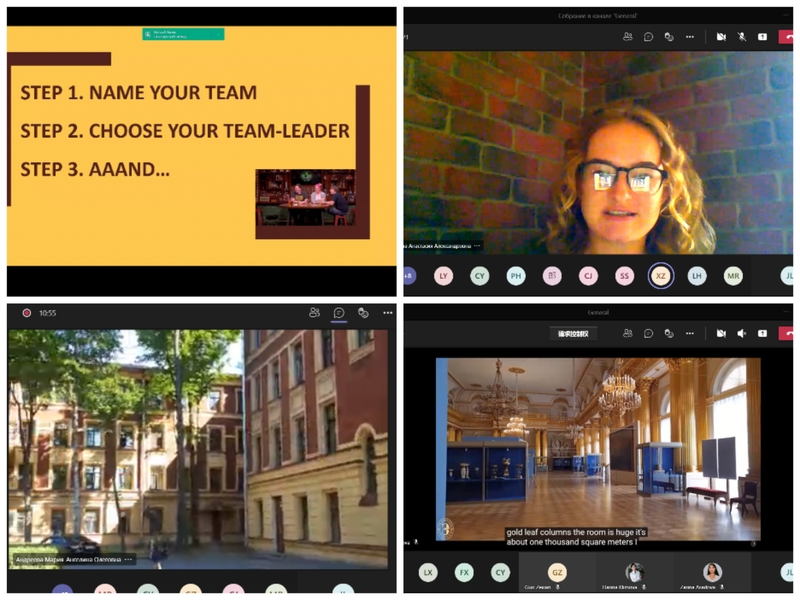
The students learned a lot from this online exchange. The convergence of multiculturalism and the collision of different thinking not only broadened the horizons of the students, but also were a rare opportunity to learn from peers from all over the world. It is believed that this learning experience will become a valuable experience for the students on the way of learning and a precious spiritual wealth on the way of life. We also hope that this exchange activity can inspire students to forge ahead, create brilliance, and show the world with the demeanor of Zhejiang University! Thanks for the University of St. Petersburg in Russia and the Department of Physics in Zhejiang University for organizing such a wonderful summer school for us, especially the dedication of the organizers and professors.

Add: No. 8 Hainayuan Building, Zijingang Campus, Zhejiang University, 866 Yuhangtang Rd, Hangzhou, 310027, P.R. China
Tel: +86-571-87953325
Fax: +86-571-87951895
Email: yongyi@zju.edu.cn